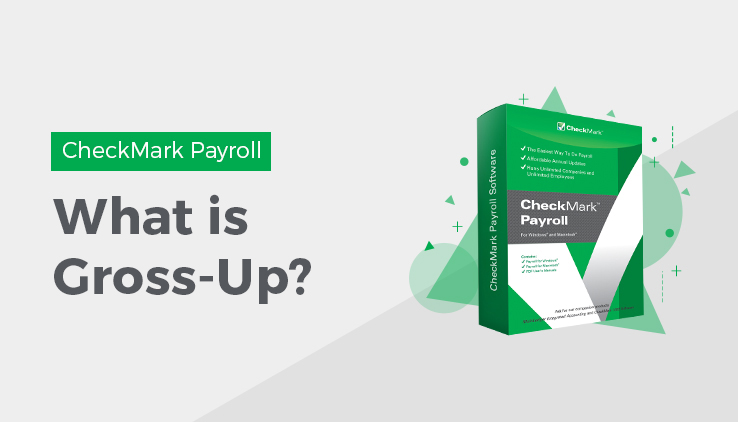What is Gross-up?
Some typical circumstances of gross-up include the following situations:
— A salesperson receives a $100 bonus. The sales manager wants the salesperson to receive $100 in cash (after withholding taxes), so the gross amount of the bonus will be more than $100.
— The employer decides to pay the employee’s taxes on taxable relocation expenses.
— The value of excess group-term life insurance for a terminated employee is calculated but social security tax or Medicare tax was not withheld; gross-up is required.
When grossing up, the taxes paid by the employer are included in the employee’s taxable income.
Calculating Gross-up
To calculate gross-up, take the following steps.
- 100% – tax% (federal/state/local taxes) = Net%
- Payment / Net% = Gross amount of earnings
- Check by calculating gross to net pay
For example, calculate the gross-up on the salesperson’s $100 bonus. Bonuses are taxed at the supplemental tax rate of 28%; in addition, social security tax of 6.2% and Medicare tax of 1.45% are due. Assume that there is no state or local income tax and that the salesperson will not meet the social security limit. Thus the tax percentage (step 1) is 35.65% (28% + 6.2% + 1.45% = 35.65%).
- 100% – 35.65% = 64.35%
- $100 / 64.35% = $155.40 Gross amount of earnings
- Check by calculating gross to net pay
$155.40 x 35.65% = $55.40 (tax withheld)
$155.40 – $55.40 = $100 (bonus)
Grossing up with special circumstances
In most payroll circumstances, the gross-up formula works when paying the employee’s taxes. However, if the payment of the taxes causes the employee’s year-to-date social security wages to cross the social security wage base, the formula must be revised. The following revised formula accounts for the maximum social security tax that can be withheld for one year.
- 100% – tax% (federal/state/local taxes, except social security) = Net%
- Payment + ((SS wage base – Prior year-to-date payments) x 6.2%) / Net = Gross amount of earnings
- Check by calculating gross to net pay
For example, calculate the gross-up on the salesperson’s $100 bonus with the salesperson’s year-to-date social security wages of $87,850 (2004 wage base is $87,900). Bonuses are taxed at the supplemental rate of 28%; in addition, only $50 of the bonus is subject to social security tax while the entire bonus is subject to the Medicare tax. Assume that there is no state or local income tax.
- 100% – (28% + 1.45%) = 70.55%
- $100 + (($87,900-87,850) x 6.2%) / 70.55% = $100 + $3.10 / 70.55% = $146.14
- Check by calculating gross to net pay.
$146.14 x 29.45% = $43.04 + $3.10 (social security tax) = $46.14
$146.14 – $46.14 = $100 (bonus)

